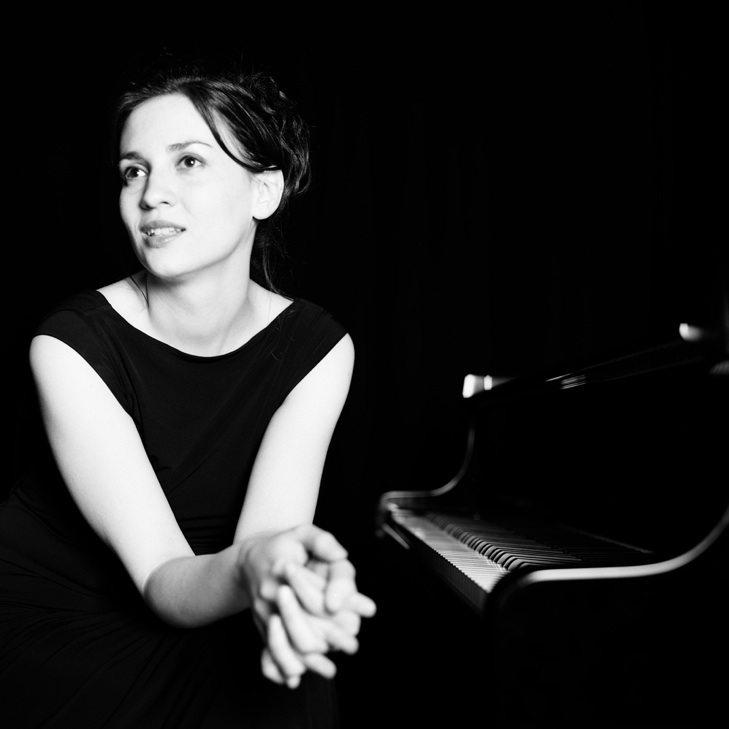There are some recitals where you think only about the abstracted music - the harmonic arguments, the structural cleverness, the textural ingenuity - and there are others where you are forced to confront the presence of a set of living, breathing, leering musical beasts. Last night's stunning Wigmore Hall debut by Sarajevan-born pianist Ivana Gavrić - to a sellout crowd - was a very compelling example of the latter: a performance where the musical storytelling was being so well communicated that it was almost as if she was speaking to the audience or rolling a projector.
A vivid set of works from Eastern European composers - Bartók, Janácek, Rachmaninov and Prokofiev - packed with plenty of characterful back-and-forth and percussive argy-bargy helped. There was also a chunk of Schubert at his most terror-laden, the Sonata in A minor, D784, lurking menacingly amid the Modernism echoing all around it - particularly the Janácek.
It was all very Gothic, a term never used in conversations about musical style but exactly what united this programme, dominated as it was by an unnerving perversity and a fixation on rupture.
But it was down to Gavrić to make these jagged vistas come to life. How she did it was intriguing. For it wasn't through the normal channels of touch and pedalling that colour sprang. It was through phrasing and rhythmic control. She stamped her character on the evening from the off with a kaleidoscopic performance of Bartók's Suite, Op 14, in which a choking fog (a premonition of Janácek's to come) descends upon a jaunty affair. Janácek's fog, V mlhách, usually translated as In the Fog, became a mist in both the programme notes and on stage, as Gavrić took a windy rubato to the work - very convincingly - from start to finish. There's a colloquial ease to Gavrić's way with the Sprechstimme-like Eastern European melodies of Janácek, Bartók and the Prokofiev Sonata in D minor, Op 14; she has the musical equivalent to the gift of the gab.
In the Rachmaninov she showed a different side: Gavrić the singer and poet. What a line she spun. If ever there was a piece of music to fall in love to, the Prelude in D Major, Op 23, is it. There's something almost cinematic about its self-conscious amorousness and Gavric reveals the tryst in one tracking shot, a single long breath. There were plenty of lovely things in the Schubert too: some fabulous skittish decrescendo arpeggio scuttling and agitated asides. At times the nerves got to her but only for a moment or two. Her concept of the D784 was especially interesting for its unity, the darkness and anxiety always seeping into the lullabies. I feel the work is far more bipolar than this but I wasn't put off by Gavrić's reading at all.
The only disappointment was the Prokofiev. And I'm not sure Gavrić was to blame. Prokofiev's truculent Second Sonata is not a pretty work. There was something of the fat man with a balloon about it, the left hand hacking away at blockish chords or Alberti basses and the right tootling along desperately. Perhaps this was where a more varied touch and pedal might have bailed things out.
No matter, though. I left with a mightily appreciative audience feeling invigorated and eager to hear her Chopin, Schumann and Brahms. I'm sure we'll get the chance; Gavrić has a great career ahead of her, of that there is no doubt.
- Check out Ivana Gavrić's website
- Check out the rest of the Wigmore Hall season














Add comment